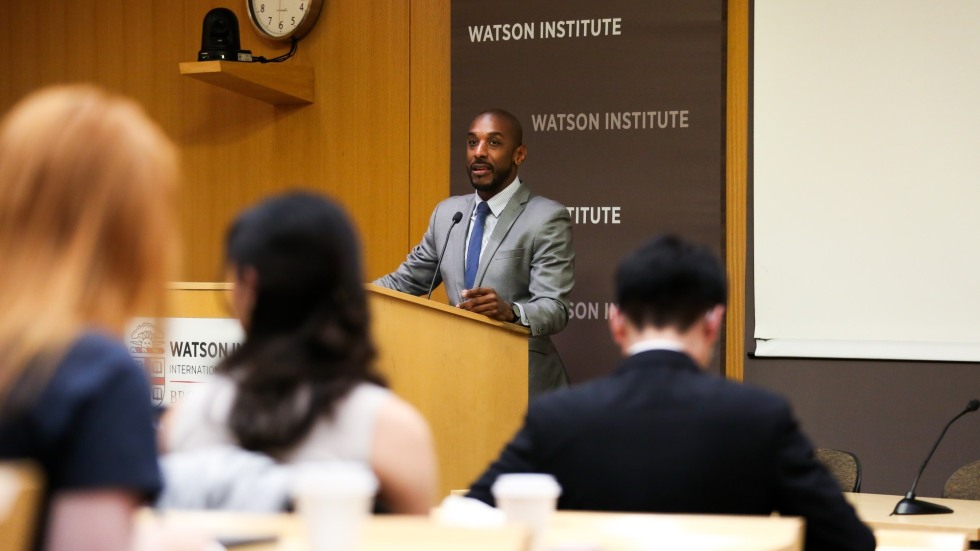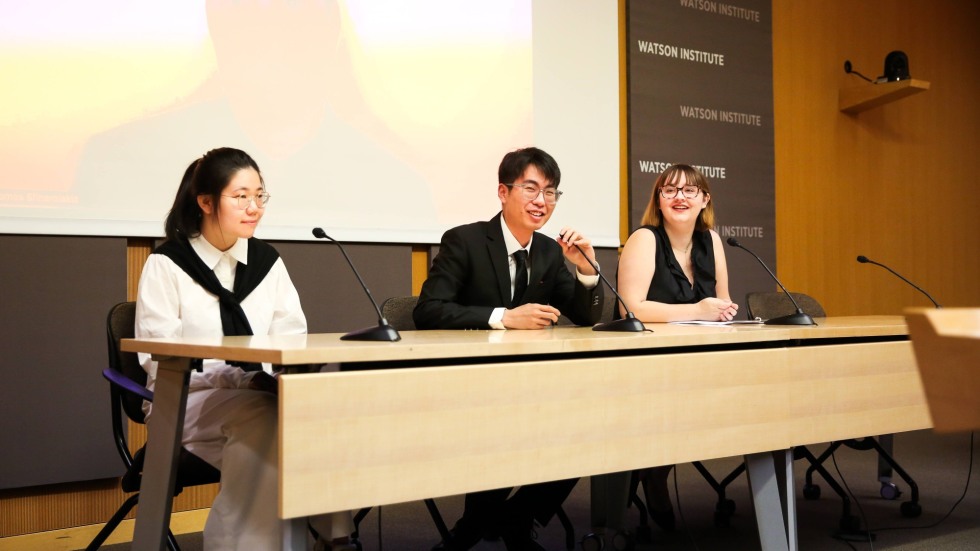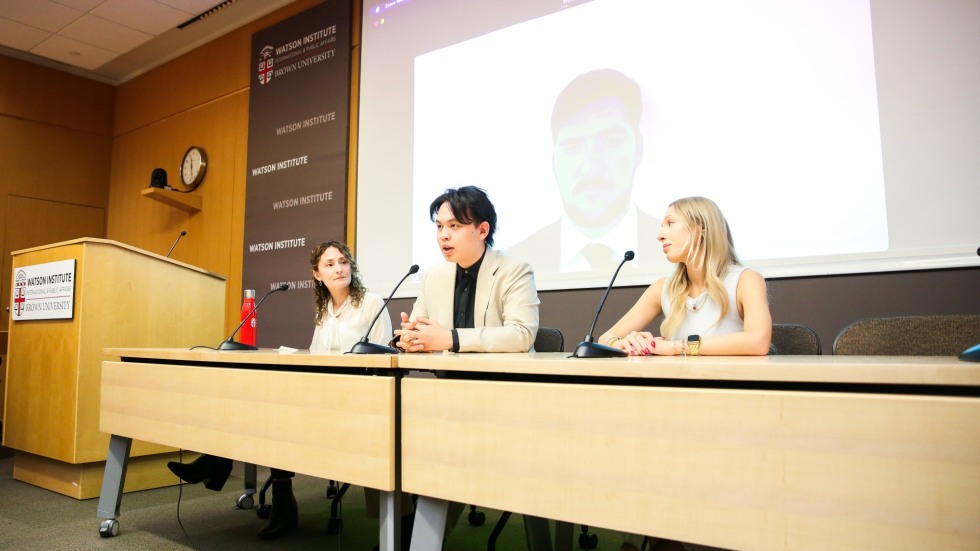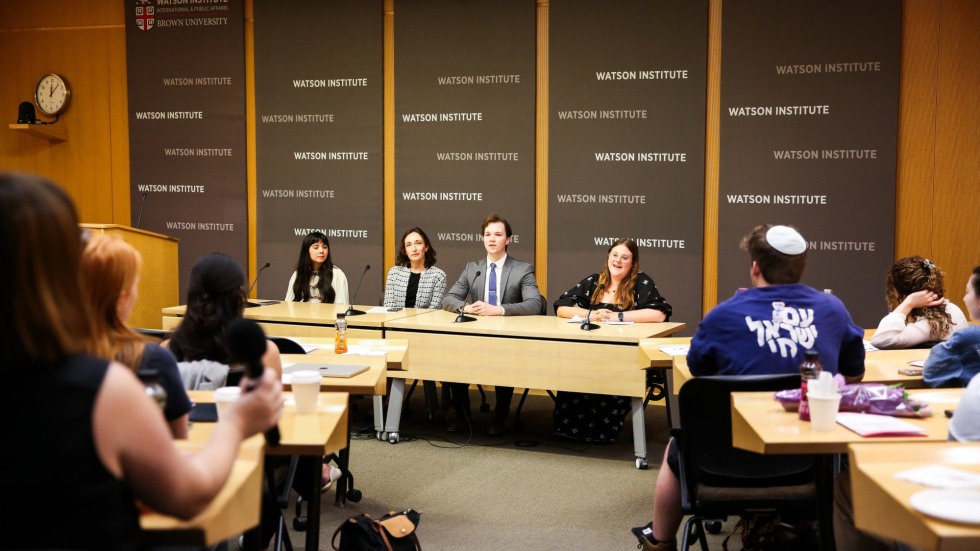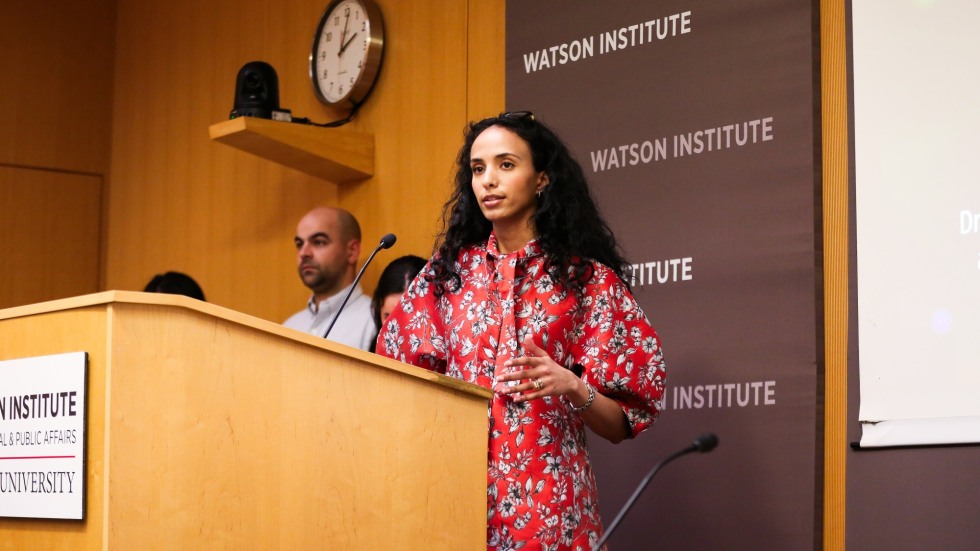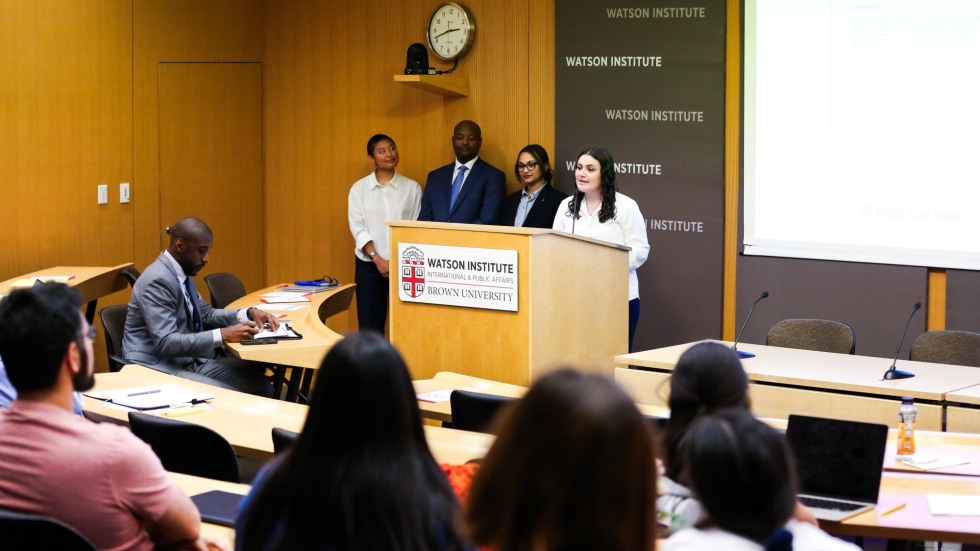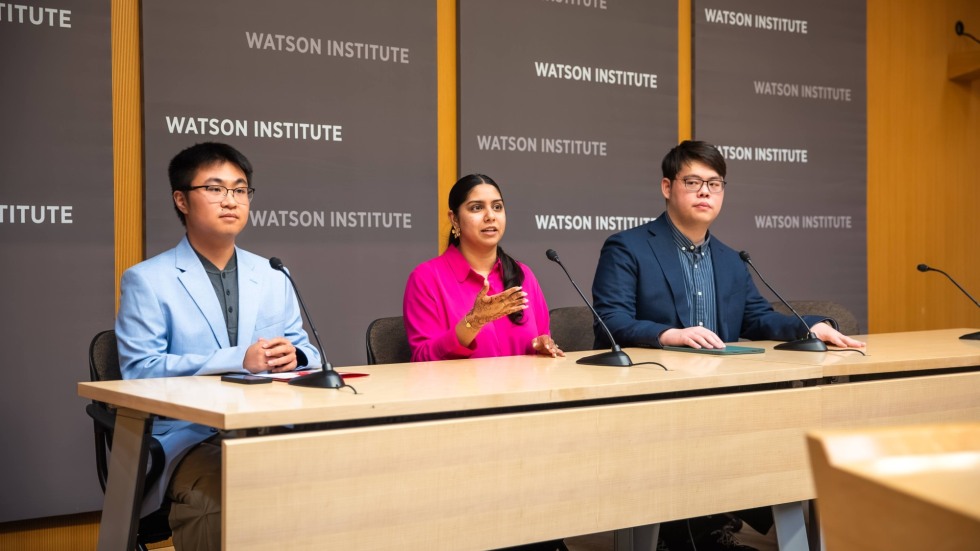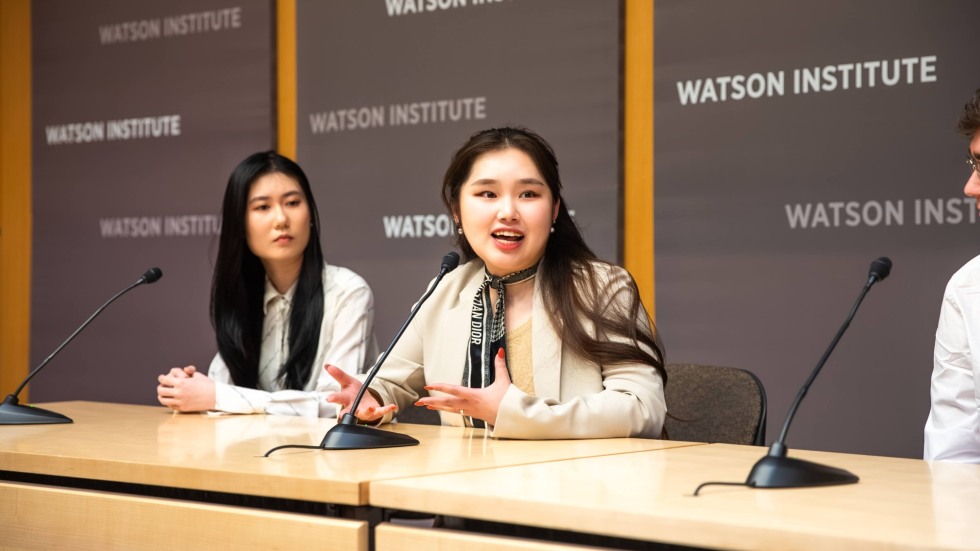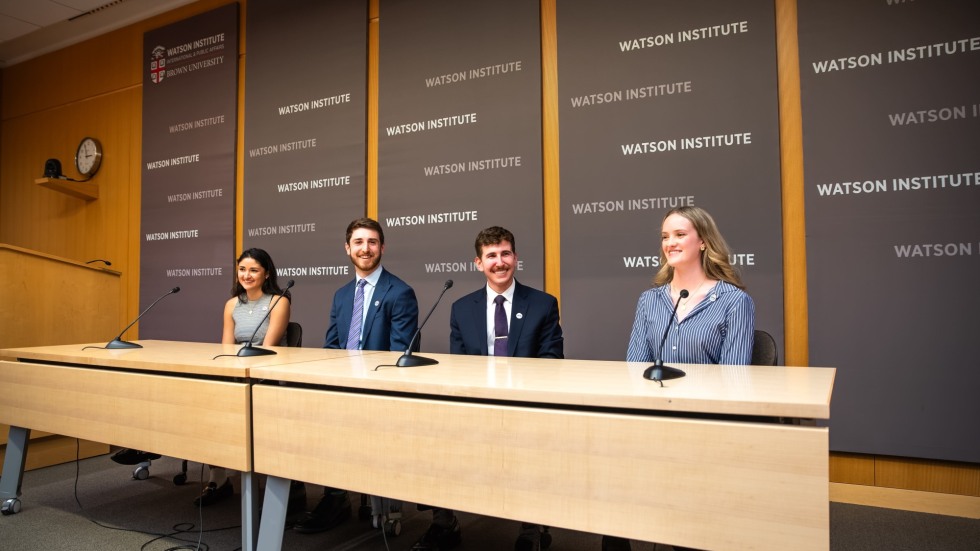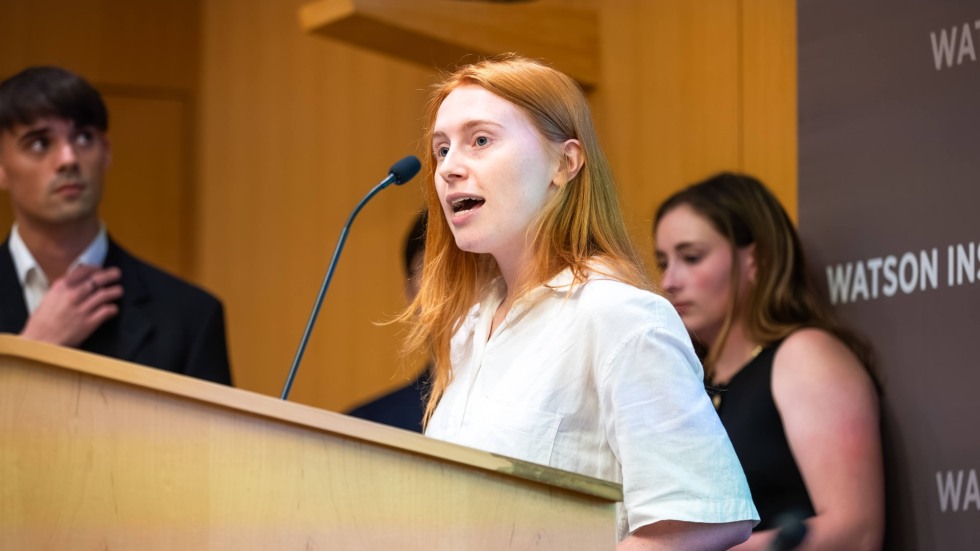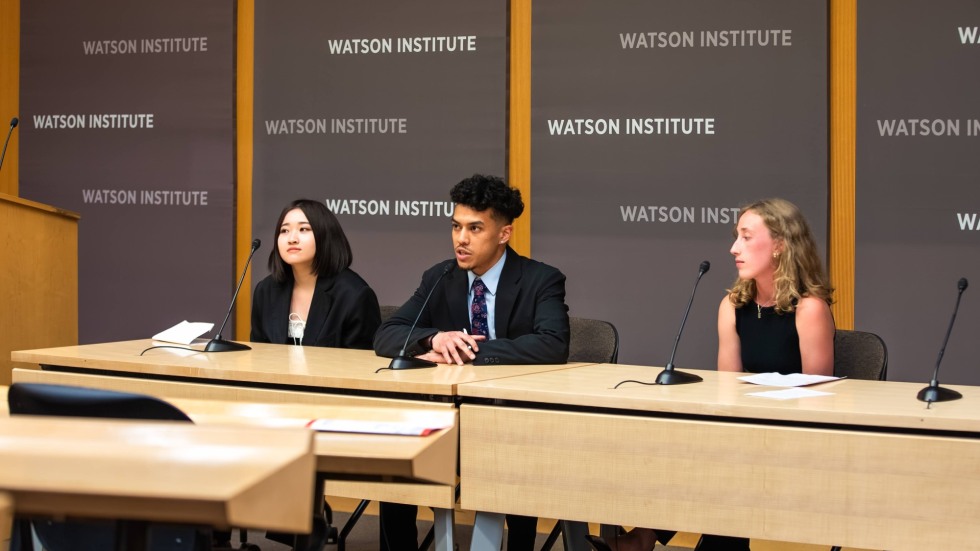The Brown University Master of Public Affairs (MPA) program held its Policy in Action Symposium May 12-14. At the symposium, the soon-to-graduate MPA students presented results from their Policy in Action (PIA) projects.
The key experiential component of the Brown MPA learning journey, the PIA experience allows students to apply the skills they have learned in their academic coursework to real-world policy challenges by working with governmental and nongovernmental organizations around the world.
According to the Faculty Director of the MPA Program, David Blanding, "The Policy in Action experience is designed to help students bridge the gap between rigorous academic training and real-world practice. Sometimes the neat packaging of a research article, a textbook, or a course simply does not do justice to the messiness of public policy, public administration and public affairs."
Through the PIA program, small teams of students work on projects with sponsoring organizations under the guidance of professors with practical experience in public affairs. The model helps expose students to the multidisciplinary, collaborative nature of contemporary policy work and develop highly valued professional skills, including critical thinking, the ability to make evidence-based decisions in complex situations, and navigating diverse workplace environments.
Blanding emphasized the importance of teamwork to the learning process. "The academic study of these fields might lead students to believe — erroneously — that they can be successful changemakers alone," he said, "but on our Policy in Action projects students learn that working with others enables them to produce economic, political and social changes far more powerful and far more efficiently than they could on their own."
While working on their projects, students also attended a mandatory academic course in which they learned to apply skills related to project management, stakeholder engagement, and communication. This year's course was co-taught by Blanding and Visiting Lecturer in Urban Studies and International and Public Affairs, Nicole Pangborn.
